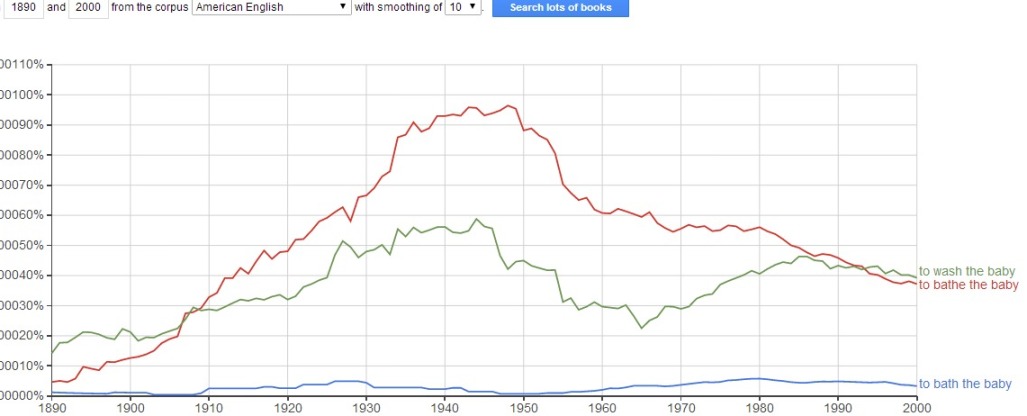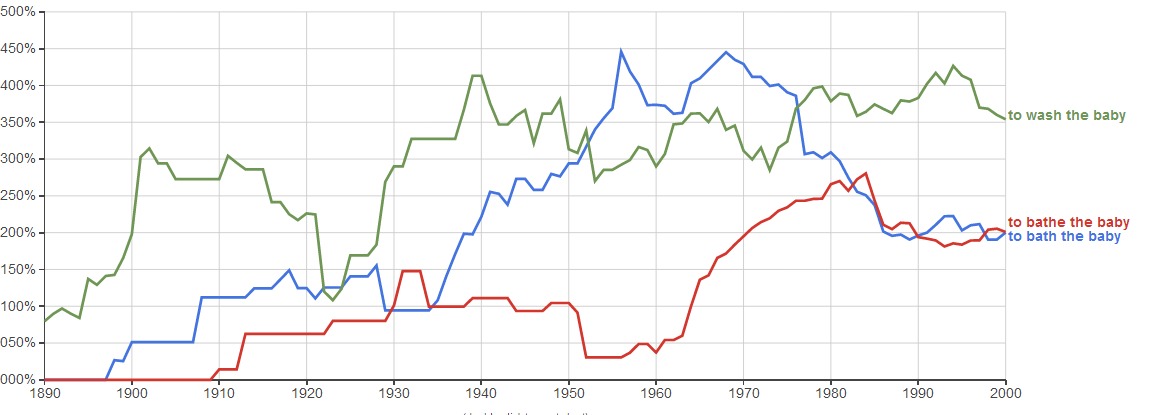Recently, I came across the verb to bathe written as bath in two English coursebooks used by Italian students. The first time I saw it, I dismissed it as a typographical error and told my private student that the verb was bathe, but when it appeared a second time, in a different textbook, I checked with an online dictionary and read the following definition with which I am most familiar.
- bath verb: to wash (someone) in a container filled with water
"to give a bath to (someone)"
"to have a bath" : to wash yourself in a bath
But in a different dictionary I read this
Oxford Dictionaries
[WITH OBJECT] British
1. Wash (someone) while immersing them in a bath:
how to bath a baby1.1 [NO OBJECT] Wash oneself while immersed in a bath:
a)there was no hot water to bath in
b)These are the people that quite happily let me shower and bath with no hot water for 10 days, because they couldn't be bothered to fix a tap.
I told my student that it appeared that to bath was a BrEng variation and that Americans probably didn't say or use it.
However, upon doing some research I found many websites that use bath and bathe indiscriminately, with the same meaning
- How do I bath my baby? Netsmum.com (UK)
- Read about how to bath your baby NCT.uk (UK)
- In California it is illegal to bath two babies in the same bath at the same time. Stupid Laws.com (US) [this might be a typo]
- But try not to bath more than once a day Raising Children.net.au (Aus)
- You can bath the baby daily, but make sure… . Marhababy (Arab Emirates)
- It’s not necessary to bathe your newborn every day Mother & Baby.com.au (Aus)
- If it's easier for you to bathe the twins during the day... Parents.com (US)
- The first time you bathe your baby, you may feel a bit nervous. Babycenter.in (India)
- You don't need to bathe your baby every day... NHS.uk (UK)
- What’s the best way to bathe my baby? InfaCare (UK)
The above shows the transitive use of the verb bath/bathe. I presume the age of the child or adult being bathed is not a key factor, it was just easier for me to search "bath/e your baby".
The phrase in one of my student's coursebook was using the intransitive form instead.
You'll visit onsen or thermal springs where we recommend you bath communally like the Japanese.
Questions: Apparently, both forms are acceptable but is to bath AmEng or BrEng? Is it grammatical? (I just find it so odd.)
Finally, if the pronunciation of the verb to bath is /bɑːθ/ (UK) and /baTH/ (US) does this effect the pronunciation of the past form bathed? i.e. /bɑːθt/ (I don't think it does, but I'd just like a confirmation)


